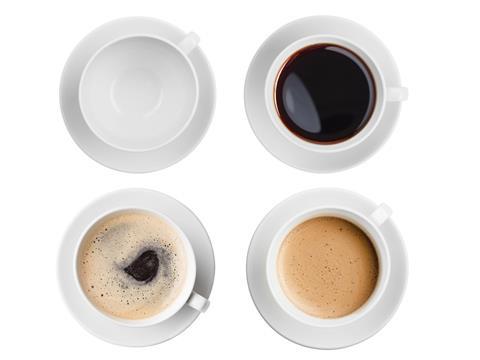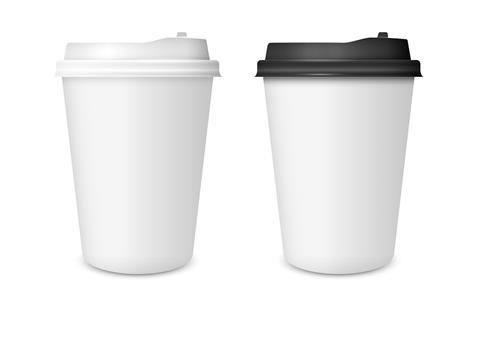
As a microcosm of an ongoing examination into the key issues surrounding packaging recycling, Packaging Europe’s Libby White explores the industry response to the latest findings from the overarching UK Environmental Audit Committee’s Disposable Packaging Inquiry.
The EAC summarises in its latest report released on Friday 5th January 2018, ‘Disposable Packaging: Coffee Cups and Plastic Bottles’:
“2.5 billion coffee cups are used and thrown away each year in the UK - enough to stretch around the world roughly five and a half times - but less than 1 in 400 - just 0.25% - are recycled…
“If more people used reusable coffee cups there would be less waste, which would reduce the burden on local authorities. This would cut costs for coffee retailers, who would need to purchase and dispose of fewer cups. We heard that large coffee retailers offer a 25p discount if customers bring their own cups, but awareness and uptake is very low (around one per cent). We heard evidence that consumers are more responsive to a charge than a discount and that a charge on disposable cups could reduce use by up to 30%. We therefore recommend that the Government introduces a minimum 25p levy on disposable cups. The revenue should be used to invest in reprocessing facilities and “binfrastructure” to ensure that the remaining disposable cups are recycled.”
We pose the question: is the new calling from MPs for a minimum 25p charge, aptly dubbed the ‘latte levy’, on disposable coffee cups the answer?

David Palmer-Jones, Chief Executive Officer of SUEZ recycling and recovery UK is unconvinced of the long term effects of an imposed charge, and intimates the key is within wider reform.
“Taxes on takeaway coffee cups may provide a helpful nudge to consumers to abandon a throw-away culture, but for lasting change, proposals like these need to be part of wider, joined-up reform that shifts the burden of responsibility for all forms of packaging content, recyclability and ultimately their collection, back to the producer.
Speaking on behalf of The Paper Cup Alliance, Mike Turner goes further by cautioning against measures that could potentially hurt consumers and harm the high street economy:
“Taxing the morning coffee run will not address the issue of litter but it will hurt consumers and impact already struggling high streets. No packaging type is totally recycled and a ban on paper cups would hit manufacturing jobs and damage a growing service industry which makes a major contribution to UK Plc.”
Why charge consumers 25 pence a cup when industry is willing to provide funding for recycling? asks Martin Kersh, Executive Director of the Foodservice Packaging Association.
He confirms, “If two key proposals of the EAC report are enacted then there is no requirement for a 25p charge on paper cups to fund recycling infrastructure for cups and all other packaging used for on-the-go consumption.
“The recycling of paper cups is set to increase fast as the coffee cup industry and its customers have introduced a large-scale recycling facility. The key to increased recycling therefore is increased collection and this requires an on-the-go waste management infrastructure that addresses all packaging used in this way and not just cups.”
Addressing waste
Mike Turner representing the PCA focuses on the sustainable attributes of paper cups: “They are the most sustainable and safe solution for drinks on-the-go. Consumers want to do the right thing and we’re taking steps to support that through new infrastructure and country-wide initiatives.
“The paper cups we manufacture in the UK are sustainably sourced, responsibly produced, recyclable and, through a number of facilities, are being recycled. We are committed to increasing recycling rates. Over 4,000 new recycling points were created in 2017 and a new country-wide initiative is launching during January increasing options for consumers to recycle.”
David Palmer-Jones, SUEZ, agrees that sustainability is key, enthusing that for any so-called latte tax to be more than just a light and frothy foam nod to reform, we need to wake up and smell the real coffee needed for a lasting brew. “Increased investment in sustainable product design, greater use of recyclable materials and better capture of materials at the end of their life, in order to help eradicate the bitter taste litter leaves behind in our streets, hedgerows, rivers and oceans.”
Taking progressive steps
The PCA acknowledges that whilst paper cups make up only 0.7% of total paper packaging waste and 0.1% of total household waste, too few cups are being recycled. Mike Turner adds that in response they are working hard across the industry to improve on this.
In October 2017, organisations from across the paper cup supply chain signed an agreement with the Alliance for Beverage Cartons and the Environment (ACE UK) to accelerate UK recycling of paper cups. The cross-industry collaboration will work towards delivering a long-term, nationwide paper cup recycling solution.
The FPA has consistently called for reform to the PRN system used by UK businesses to meet their packaging producer responsibility obligations and for the introduction of a funded on-the-go waste management infrastructure. Martin Kersh underlines, “We are very pleased that the EAC has recognised and endorsed both proposals in its report.”
He continues, “A reformed PRN system will produce the funding for on-the-go recycling bins and the onwards management of those bins resulting in the recovery and recycling of valuable materials currently lost due to the lack of on-the-go waste management.
“Business has made clear its willingness to provide greater funding to achieve more collection and recycling through the PRN system.
“Surely Government should seize this opportunity and reform the system?”
Instead of fuelling wasted arguments, the recent magnifying glass trained on coffee cups is encouraging debate around the complex issue of combatting packaging waste and increasing recycling. The consciousness of the industry is powering momentum towards long-term solutions.













